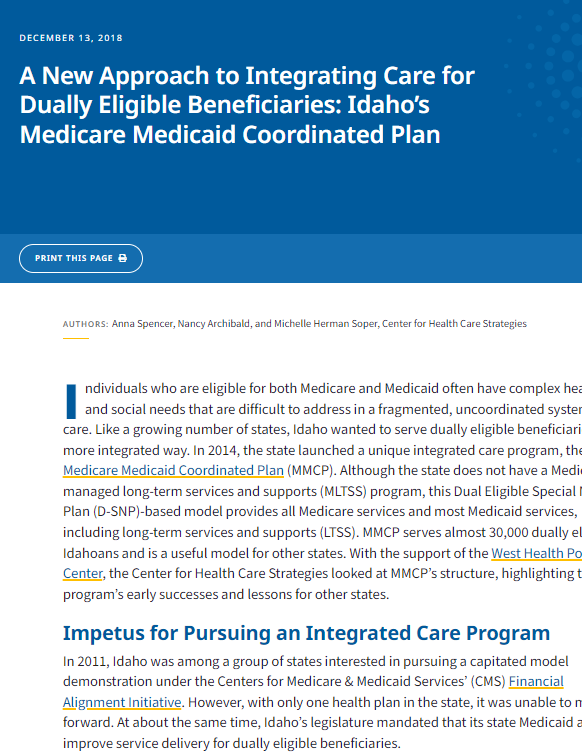Headline
Idaho's innovative Medicare Medicaid Coordinated Plan offers valuable lessons for states nationwide.
Context
In 2014, Idaho launched the Medicare Medicaid Coordinated Plan (MMCP) as an integrated care program to address the complex health and social needs of dually eligible beneficiaries. The MMCP operates as a Fully Integrated Dual Eligible Special Needs Plan (FIDE SNP) and integrates Medicare and most Medicaid services for nearly 30,000 dually eligible individuals. Key elements of the MMCP include a contracting strategy that mandates D-SNPs participate in the program in order to operate in the state, comprehensive coverage of Medicare and Medicaid benefits, and a voluntary enrollment process. The program's care coordination focuses on providing a seamless experience for beneficiaries, with care coordinators acting as the primary point of contact, as well as offering support in education, medication management, and transitions between care settings.
Findings
This case study documents early successes as well as key challenges and lessons of the program. Important lessons include using local care coordinators, building a strong understanding of the Medicare landscape, ensuring state-specific orientation for health plans, and anticipating evolving data needs for effective program implementation.
Takeaways
As the first state to create a FIDE-SNP framework without relying on a Medicaid managed long-term services and supports program, Idaho’s MMCP stands out as a model for states exploring approaches to integrate care for individuals eligible for both Medicare and Medicaid. Idaho's insights offer valuable guidance for other states striving to improve care for dually eligible individuals.



